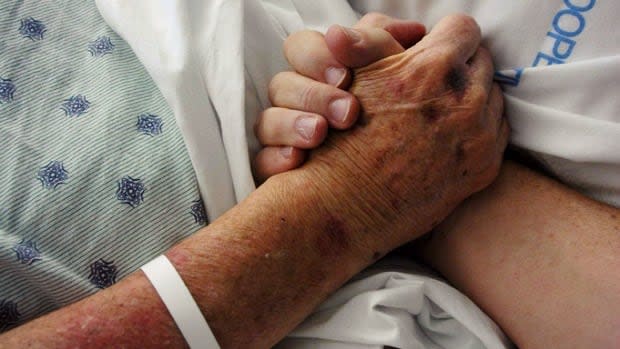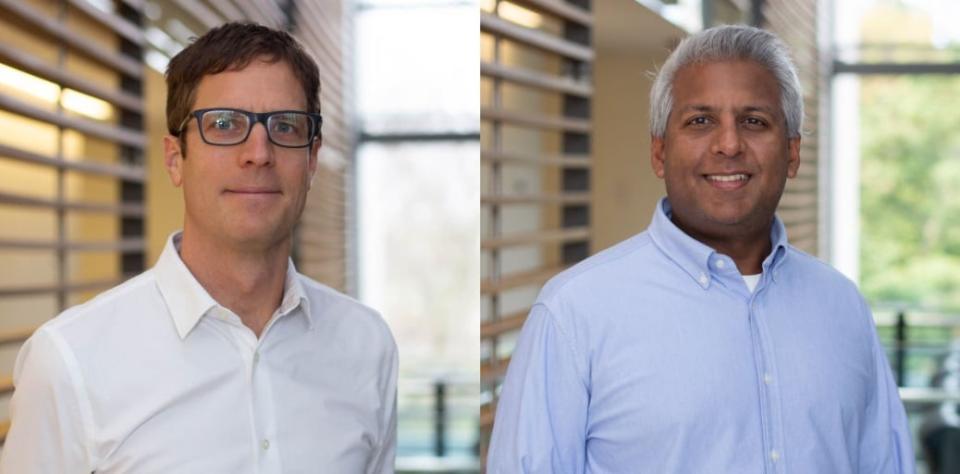Queen's project aims to reduce isolation among the terminally ill
- Oops!Something went wrong.Please try again later.

Queen's University doctors are rolling out a program this year that's inspired by their experiences in India and is intended to reduce loneliness among terminally ill patients in the Kingston, Ont., area.
The program, called Kingston Cares (KINCARES), involves training dedicated volunteers to visit people weekly in the final months of their lives — and doing everything from making them tea to taking them for walks to ministering to their emotional needs.
Dr. Christopher Booth, an oncologist and professor at the university's departments of oncology and public health sciences, worked at a cancer hospital during a sabbatical in Kerala, India, in 2016.
While there, he also joined a palliative care group that made house calls in a minivan. Doctors' visits were complemented by regular visits from volunteers drawn from the patient's community.
"They provide this amazing holistic, compassionate model of care near the end of life to address many of the things that our current model in Canada really is unable to address given all the constraints we have in the home care world," Booth told CBC Radio's All In A Day last week.
Dr. Jean Mathews, a palliative care physician and assistant professor in Queen's departments of medicine and oncology, is also involved in the project.
He is from Kerala and worked with the same local palliative care group Booth was involved with.
A chief goal of KINCARES, Mathews said, is to reduce patients' social isolation, which can have an impact on the timing of their trajectory through the medical system.
"People with a serious illness, even if they want to remain at home as long as possible, they — because of social isolation — end up going to the emergency room in the last year of life [or] a hospital or a long-term care facility earlier than they would want to," Mathews said.
"So there's this over-medicalization of health care at the end of life."

Dr. Christopher Booth, left, and Dr. Jean Mathews, right, are both involved in the KINCARES project and are trying to recruit volunteers to take part. (Queen's University)
Once all the patients and volunteers for KINCARES are found, the pilot project will last three months, and then the team will assess the potential to try the program elsewhere.
Mathews is optimistic.
"We think that's an example of low-cost innovation that could have a huge impact," he said.

